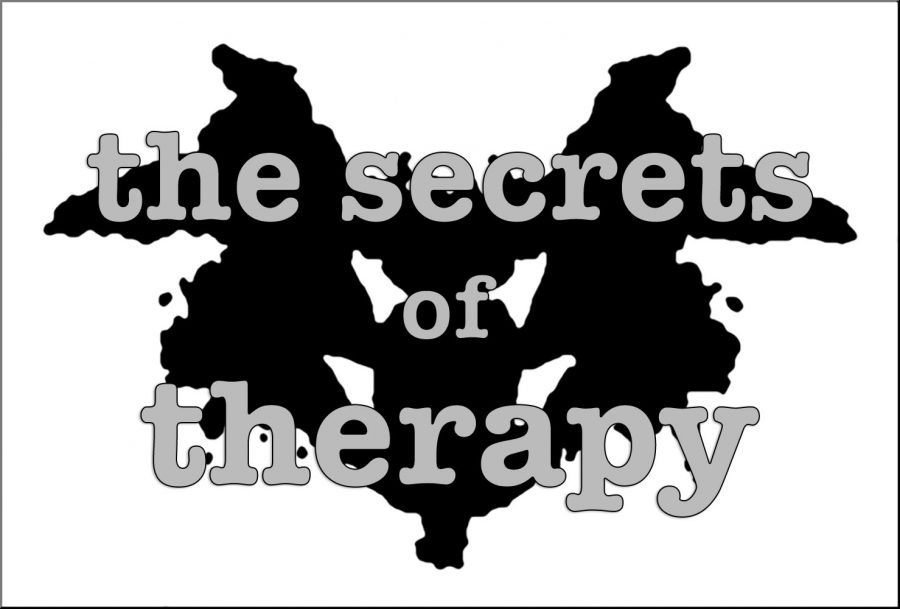Therapy alternatives
Methods available to students to treat mental illnesses
March 1, 2019
Many students have the constant recurring feeling deep inside them that they keep to themselves. It is easy for people to assume they are alone with their problems, but the more they push them away, the harder it is to cope. Depression and anxiety are a few examples many teens are faced with on a daily basis.
Treatment for various illnesses, however, can be quite pricey, so a majority of teens never purchase prescribed medications or have the ability to attend therapy sessions. One in four Americans refuses to seek medical help because they are unable to afford it. Sometimes a person will resist talking to an adult about the situation they are in because they assume they will be judged by their family or friends allowing loads of unnecessary negative emotions to continuously build up.
“I’ve gone to therapy since the seventh grade and it allows me to let out my feelings and get an unbiased opinion from someone,” John Smith* said. “Therapy has been helping me a lot. I go once a week, sometimes twice. My therapist helps me be a better person and allows me to talk to someone about my personal problems.”
A mental illness can severely affect a person’s confidence. However, they are simply unable to help it. All of these illnesses can affect anyone, but there are also many efficient ways to treat each one.
“We receive students with a various array of problems or any concerns they may have. If we feel like the students may need some therapy outside of school, we will refer them to a counselor or talk to their parents so they have permission from their parents to receive therapy outside of school,” school counselor Dana McAdoo said. “It depends on what day of the week and what’s going on with a student that determines how many people come in. Within a month, we have students coming in because it’s stress time or test time and we have a lot of students that will have too much on their plates so they get anxious.”
Anxiety can be caused by changes in a person’s life, relationship problems, decision making or presenting in front of a group of people. Signs that a person is dealing with anxiety is restlessness, muscle tension, trouble sleeping, shortness of breath, panic attacks, periods of intense fear and trembling. Some coping mechanisms include reaching out to support systems like a physiatrist, family, friends, therapist, journaling, listening to calming music, taking deep breaths, meditating, exercise and yoga.
Many students struggle with depression but are unaware of the symptoms or causes. Depression does not have a specific cause. Instead, it is a mixture of genes, events in your past life, current circumstances and more. Women are twice as more likely to get depressed than men, and elderly people are also more at risk to have depression. Some cures to depression are prescription pills, therapists, relaxing activities and spending times with family and friends.
“I see therapy is going deeper than counseling, as in exploring the contents of the unconscious mind. This is the part of our souls that we can’t remember. Its traumatic contents can really interfere with our lives,” therapist Anne Redelfs said. “My life is very intimate and rich. Everywhere I go, whether officially working or not, I see people who need soul assistance, so I tend to have very intense interactions with people. It sometimes feels like I am always working. But I love what I do; I just wish more people were willing to explore their hearts and minds and come to know the precious child of God that is their true identity.”
Sometimes it can be difficult to locate the symptoms of an illness especially if you’re diagnosing an illness yourself. For instance, if a person can’t control their emotions, they may have panic or anxiety attacks, feel unhappy about their lives, have medical symptoms that a doctor is unable to explain or triggers quite often or they relate to other depression or anxiety symptoms listed above.
If self-help is difficult, any student can receive therapy in the following three ways.
- A student always has the free assistance of the counselors’ offices that are located in the Math and Science Building. You can make appointments for whenever you feel is necessary. The counselors are more than happy to assist you.
- The website Better Help offers online counselors that can assist a person with depression, stress, grief, broken relationships, anxiety, self-esteem and more. It does cost the same price as an in-person therapist would, but you are able to stay within in the comfort of your home if that appeals more to you.
- A more affordable way is to go on YouTube to watch free therapy videos from certified therapists or counselors. You can simply search the type of counseling you need and watch a person behind the screen give you advice on your subject.
The idea of talking about your problems with someone may sound slightly frightening, but it is vital to know that one’s mental health is a major priority. Therapy and counseling can be for absolutely anyone and will not make you less of a person. Never forget that there is always someone willing to listen.
*Name has been changed to protect the source’s identity




















